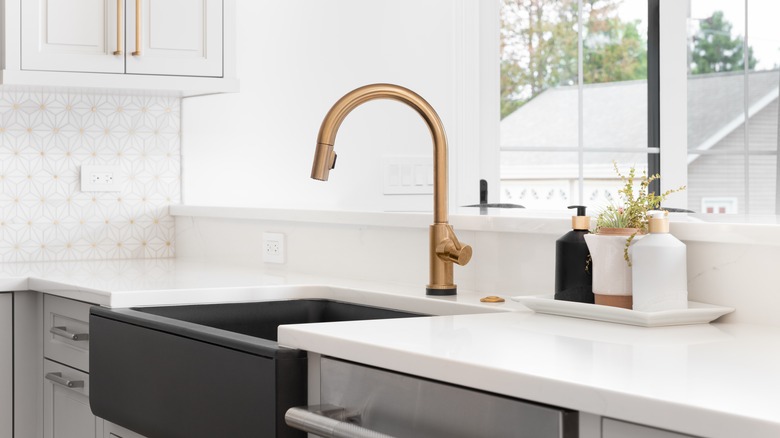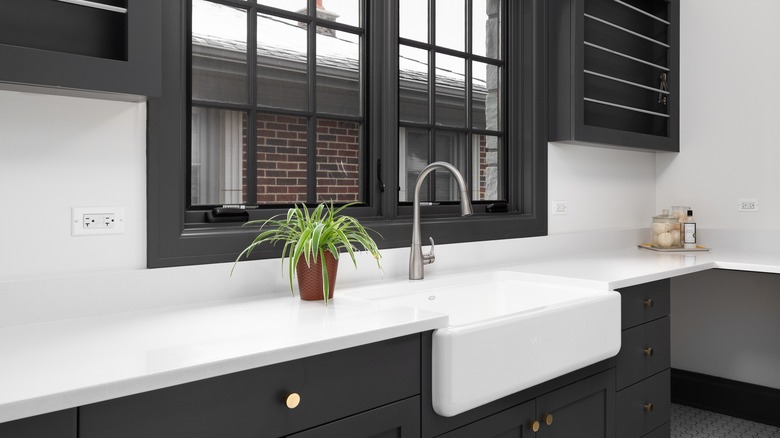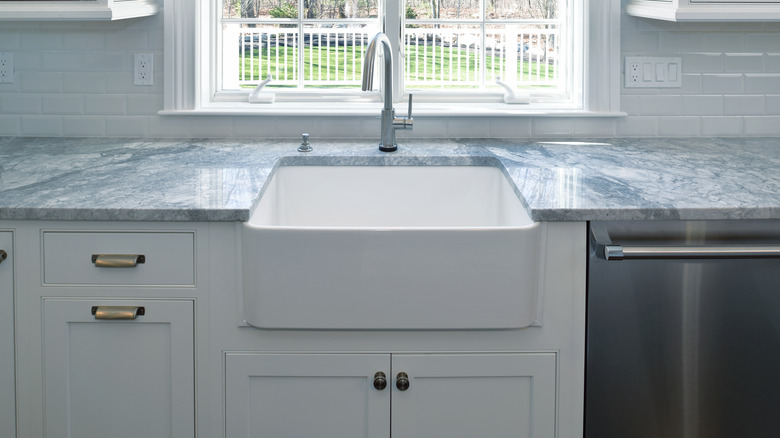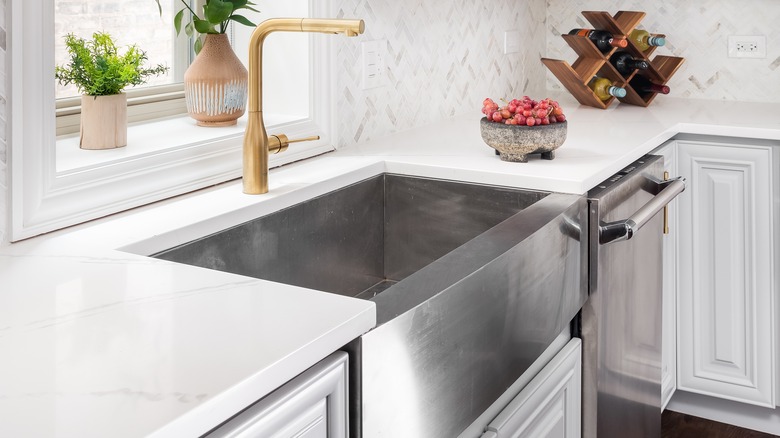The Hidden Downsides To Farmhouse Sinks
Modern farmhouse is an interior decor style that isn't going away any time soon. These rustic yet cozy homes are a favorite for homeowners and are often popularized by home renovation TV shows. Modern farmhouse designs flow throughout the entire home and into the kitchen, where the centerpiece is often a stylish farmhouse sink.
Farmhouse sinks originated in the late 17th century, but they're still incredibly popular in contemporary kitchen designs today. According to Sinkology, farmhouse sinks are characterized by their deep basin, wide frontage, and exposed apron, unlike a standard sink where all the sides are hidden inside the cabinetry. Despite their popularity, however, there are some disadvantages to farmhouse sinks. They may not be reason enough to shy away from choosing a sink you really love, but these downsides are something to consider when deciding if a farmhouse sink is the right choice for your kitchen and home.
Farmhouse sinks can be pricey
If you're planning on a budget remodel, then a farmhouse sink might not be the best option. Farmhouse sinks are much larger than traditional sinks, and that extra space comes at a price. Many homeowners who have a farmhouse sink love the look of it, but they admit to having to budget for it. Including installation, a farmhouse sink can cost from $500 to well over $3000 explains Vevano Home.
The main factor that affects the price of a farmhouse sink is the material. Stainless steel, copper, and fireclay are three of the most common materials; all loved for their durability. But that durability does increase the price somewhat. The Installation method can also increase the cost. Farmhouse sink installation can be notoriously difficult. Sometimes you may need to replace counters or cabinets in order for the sink to fit, and this is often the case when replacing a traditional sink with a farmhouse sink.
Farmhouse sinks take up more space
One of the reasons that installation can be difficult is because farmhouse sinks take up more space than a traditional sink. Farmhouse sinks are often larger and deeper. So even if you already have a hole where your sink was, chances are, a farmhouse sink is not going to fit there. If you want a farmhouse sink, be prepared for it to take over some of your counter space and even some cabinet space below, says Custom Home Group. It's for this reason that farmhouse sinks aren't the best option for small kitchens or kitchens in need of storage.
Some farmhouse sinks, like the apron-fronted models, have a slight overhang. This means that they don't sit flush with the cabinets or countertops but rather sit slightly proud. To combat this, you might have to create extra clearance to avoid nearby drawers or cabinet doors from bumping into the side of the sink, which can cause scratches or dents depending on the layout of the kitchen.
Farmhouse sinks may need extra support
Because of the size and weight of farmhouse sinks, they need extra support, which may take up even more under-counter space. Farmhouse sinks come with specifications for installation that include cutting into the current cabinets and building a structure to support the basin. The material of your sink can also affect how much support you need.
According to Superior Cabinets, fireclay and cast iron sink can weigh up to 200 pounds when filled with water, plus pots, pans, and dishes. This is a lot more weight than most cabinets and counters can withstand on their own, so extra support underneath the sink is often required. It's recommended to have a professional build the supports and install your farmhouse sink to ensure it's properly supported. You also have to be cautious about preventing water from getting in between the cabinets and sink, which can cause your cabinets and the sink supports to weaken.



